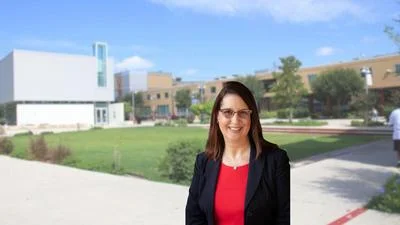The Texas Senate Committee on Business and Commerce met on Feb. 16 where they held a hearing to discuss overhauling the state energy grid.
According to an Austin Journal report on Feb. 13, the Business and Commerce Committee has been discussing changes to the Texas grid following 2021’s Winter Storm Uri, which caused a plethora of issues across the state. In January, the Public Utility Commission (PUC) adopted a plan to overhaul the grid focused on an idea called Performance Credit Mechanism (PCM). At the Feb. 16 hearing, several policy experts including Rebecca Klein, who is an energy consultant and former PUC chair, spoke about the issue of cost allocation and gave testimonies on the best path forward. They also spoke about who or what should be bearing the financial costs for increasing the reliability of the grid.
“At the end of the day, every dollar is a customer dollar,” Klein said at the hearing.
Members of the committee focused questions on who should be picking up the costs for PCM and other market redesigns.
“Should resources that are variable and sometimes not available shoulder some of the cost of their lack of reliability?” asked Sen. Charles Schwertner, who is also the chair of the committee.
Klein responded, “I think when you are going to place a certain standard that will merit more firm dispatchable resources. I think those technologies over the course of time are going to meet that standard. They’re going to adopt and are going to become more and more firm. There is a cost of doing that and they're going to have to bear that cost.”
He added, “A pertinent question I think we should all be thinking about, is who shoulders the cost? Is it going to be the ratepayer? Or should it be the resource that is causing the problem?”
Michele Richmond, executive director of Texas Competitive Power Advocates, also spoke on the issue of cost allocation in her opening remarks. She told the committee that plans to overhaul the grid “need to put the investment risks on energy companies and not on consumers.”
According to a report by Houston Daily, in a previous hearing, some senators questioned PUC Chair Peter Lake about the costs of the PCM. Sen. Robert Nichols said that while the PUC said the plan would cost between $400 and $500 million, others have said it could be as high as $5.5 billion. He called on the PCM to give more evidence on what the true cost would be.
The Austin Journal reported that Brent Bennett, who is the policy director of Life: Powered of the Texas Public Policy Foundation, previously discussed costs. Bennett said that there are positive elements to the PCM, but “more is needed because the PUC has determined that they do not have the authority to allocate at least part of the cost of the PCM to wind and solar generators.”









